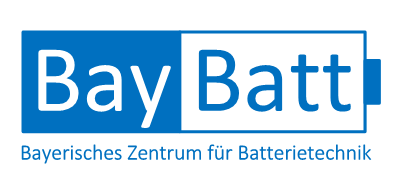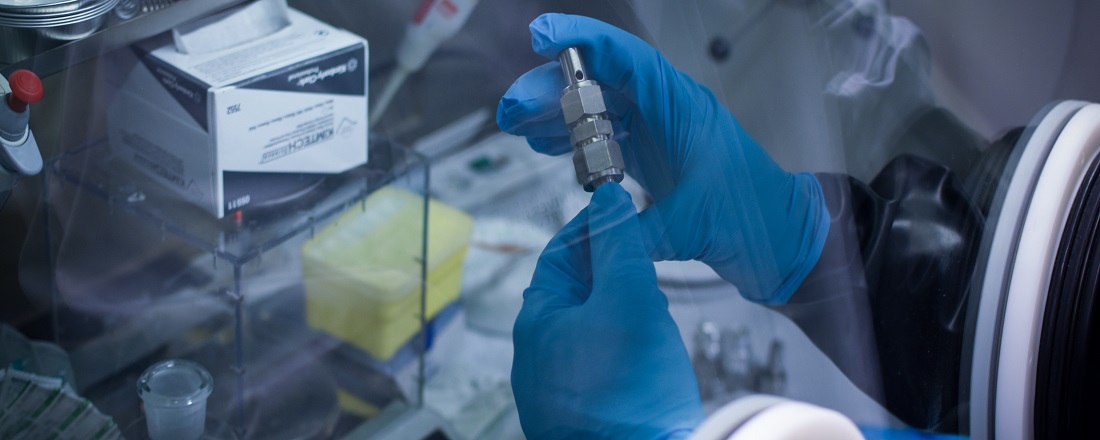Research
Research at BayBatt is based on established knowledge of the University of Bayreuth.
The following topics are key aspects of our research:
Safe High-Performance Materials
Thinner battery separators that are wettable by battery solvents shall be safe and highly efficient at the same time. Development of conducting cermic platelets and polymer processing via electrospinning will be employed in order to achieve breakthroughs in that highly active field. Furthermore, All Solid State Batteries (ASSB) are under development using solid electrolytes like ionic block copolymers and Metal Organic Frameworks (MOF) as well as Li-Garnets. Novel and safe cathode materials relying on layered materials that allow for redox reaction from Fe(II) to Fe(IV) are being investigated as well.
Interface Phenomena and Transport Processes within Batteries
Transport of charge and materials within electrochemical storage devices is determined by interface phenomena. Therefore the influence of these processes on durability, efficiency and power is significant. Formation of the solid electrolyte interface as well as defect structures at the electrodes usually limit charge transport between electrolyte and electrode. Several techniques for in-situ and operando investigation are developed at BayBatt. For example X-ray Absorption Spectrocopy (XAS), X-ray tomography, Scanning Electrochemical Microscopy (SECM) and Raman microscopy. Furthermore, in-operando NMR is provided by North Bavarian NMR Center.
Smart Battery
Battery systems shall be capable of determining their performance level including ampacity and remaining capacity and of predicting the same. A smart battery shall communicate with the superimposed energy system in terms of requirements of the latter and limitations of itself. Electrochemical operando analysis and analysis of materials and interfaces provide the evidence base thereto.
Interconnected Modules – Data, Communication and Economics
An increasing amount of electric vehicles and stationary battery modules will lead to more diverse market players on the electricity market. BayBatt develops solutions that are both, technically and economically feasible and optimizes their market potential. Dynamics of the battery module is given high priority in order to evaluate specific system services like spinning reserve, primary control and black start capability. Analysis and coupling of the battery module within energy systems is also carried out in cooperation with the Center for Energy Technology.
Sustainability
Sustainability is only achieved by optimizing the entire life cycle of batteries. Topics are resources (and reserves) of the materials used as well as production including energy consumption, carbon dioxide footprint and materials used, e.g. such as solvents. The life time during the first (and possibly the second) use of the battery is decisive for the ecological and economic outcome. Finally, sustainability relies on a circular economy, herein the focus is not only on recylcling of materials but also on refabrication.


